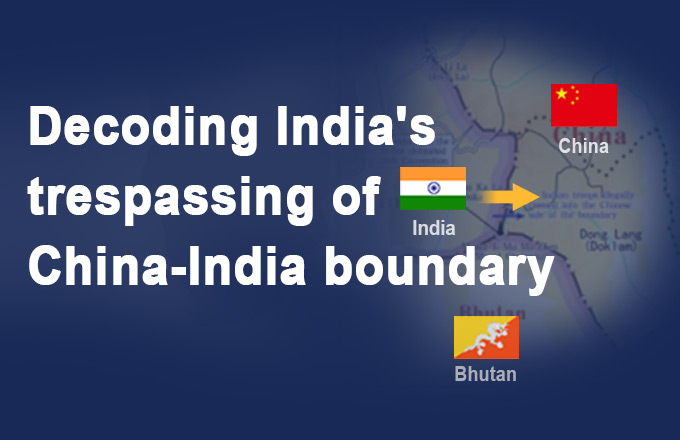Indian boxer offers championship belt to Chinese rival as gesture of peace
Vijender Singh, an Olympic medalist, defended his WBO Asia-Pacific super middleweight title and also took his opponent's WBO Oriental super middleweight belt, as the fight against China's Zulpikar Maimaitiali went all 10 rounds, reported New Delhi Television Limited.
At the end of the bout, Vijender made a surprising request and announced that he wished to return his newly acquired belt so as to relieve the tension across the China-India border, according to the Indian television media.
 |
|
Indian boxer Vijender Singh says he wants to dedicate his championship belt to his Chinese rival for the peace and harmony between China and India, in Mumbai, on August 5, 2017[Photo/Weibo] |
The 31-year-old said he dedicated his win to the "China-India friendship".
"Tension on the border is not good, because I see on social media, news, (and) it keeps getting on and on and that's not good. I don't want the title, for peace and harmony at the border between China-India. I will give it back to Maimaitiali," he said during a media interaction.
"I don't want tension on the border. It's a message of peace. That's important," he added.
The gesture follows a stand-off at the Donglang area, which is on the Chinese side of the Sino-Indian border that had become increasingly tense.
On June 18, more than 270 armed Indian border troops and two bulldozers crossed the China-India boundary in the Sikkim sector at the Duo Ka La (Doka La) pass and advanced more than 100 meters into Chinese territory to obstruct road building of the Chinese side.
Since the incident on June 18, China has been acting with goodwill and using diplomatic channels to resolve the issues, Ren Guoqiang, spokesman of the Defense Ministry, said in an online statement on Thursday night.
Earlier on Wednesday, China's Foreign Ministry published a paper giving details of the incursion and rebuking India's excuses for their action.
The illegal crossing of a delimited boundary and entering the territory of a neighboring country violate China's sovereignty and territorial integrity, international law and basic norms governing international relations, said the paper.



























